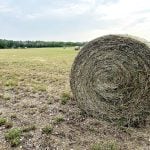The Supreme Court of Canada’s dismissal of the Canadian Wheat Board’s appeal against a federal “gag order” could open the endgate for Ottawa to order up sweeping changes at the CWB.
That’s the interpretation of the pro-deregulation Western Canadian Wheat Growers Association, in response to a decision released Thursday by Canada’s top court, in which it dismissed the CWB’s application for appeal, with costs.
The dismissal upholds an October 2006 order-in-council issued by former federal ag minister Chuck Strahl, blocking the CWB from spending farmer funds on public advocacy for its single desk for Prairie wheat and barley.
Read Also

Mail strike disrupts grain sample delivery
The Canadian Grain Commission has asked farmers to consider delivering harvest samples directly to CGC offices, services centres or approved drop offs as Canada Post strike delays mail.
The dismissal also upholds a June 2009 ruling by the Federal Court of Appeal, overturning a June 2008 ruling by a Winnipeg judge who found for the CWB.
The Court of Appeal last summer shot down Federal Court Justice Roger Hughes’ view that the government failed to show its order-in-council came from any real concern for the spending of public funds.
The original order’s “plain purpose,” the appeal court said, “is to ensure that the Wheat Board no longer advocates a mandate that is at odds with government policy,” and Hughes’ suggestion that the order was “concealed under the guise of a non-existent financial purpose is, with respect, misconceived.”
The appeal court also shot down Hughes’ assertion that the CWB is entitled to Charter protection of its freedom of expression. “The Wheat Board is a creature of statute and as such, it has no powers, rights and duties save those bestowed on it” by the CWB Act, the court said.
Put another way, the Saskatoon-based Wheat Growers on Friday quoted the Court of Appeal as ruling that the government has the power “to direct the wheat board with respect to the full range of activity conducted by the wheat board.”
Exhausted
“This court ruling gives the federal government the opportunity to make good on its campaign promise to provide us with marketing freedom,” Wheat Growers president Kevin Bender, who farms at Bentley, Alta., near Red Deer, said Friday.
In effect, he said, the Supreme Court’s dismissal provides the federal government with the authority to introduce a “voluntary” CWB.
The Wheat Growers thus urged the federal government to “to use its authority to direct the CWB on a number of operational matters” now that the CWB has exhausted its last legal appeal. Such directives, the Wheat Growers said, could include:
- that the CWB provide export licenses to all Prairie wheat and barley producers on the same terms and conditions, whether their grain is grown by organic or conventional means;
- expansion of the “processor exemption,” which the CWB’s directors authorized in 2006 to allow niche Prairie grain processors to buy up to 500 tonnes of wheat and barley direct from Prairie farmers, to “progressively” be expanded to include all processors;
- that the CWB provide no-cost export licenses for any contracted grain that it refuses to accept; and
- that the CWB provide export licenses to Prairie grain growers “on the same terms and conditions as now offered to wheat and barley producers in the rest of Canada.”
Currently, the Wheat Growers said, the CWB provides no-cost export licenses to farmers in Ontario, Quebec, Atlantic Canada and all of British Columbia except the Peace River district, while Prairie farmers wanting to export their own wheat and barley must buy back their grain “on terms that often make the export sale prohibitive.”













